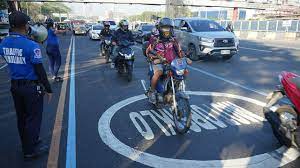from PUV phaseout, PNR closure
THE suspension of some Philippine National Railways (PNR) commuter services and the looming jeepney phaseout will have major economic consequences, an interest group representing the commuting public said.
Primo V. Morillo, convener of group The Passenger Forum, said in a Viber message: “A large chunk of commuters are workers and taking out their transport options will surely affect our economy.”
The reduction of transport options will cause many workers to be late for work, Mr. Morillo said, which would impact productivity and overall growth.
Some of the PNR’s commuter routes will be suspended to facilitate the construction of the North-South Commuter Railway.
Leonardo A. Lanzona, who teaches economics at the Ateneo de Manila, said the government must push for more transportation infrastructure outside Metro Manila to decongest urban areas.
“There should be more infrastructure, but these should be placed outside of Metro Manila. This will decongest Metro Manila and allow a broader and more balanced development program,” he said via Messenger chat.
Nearly 70% of Filipinos rely on road-based public transport, AltMobility PH Director Ira F. Cruz said.
“We strongly recommend that the (Public Utility Vehicle [PUV] modernization) program be revisited to ensure that it addresses the needs of everyone in the sector and, ultimately, commuters,” he said via Viber.
PUV drivers have until April 30 to consolidate under a cooperative or corporation to facilitate the acquisition of modern vehicles. Those failing to do so will not be allowed to ply their routes.
President Ferdinand R. Marcos, Jr. has promised that the government will fast-track railway projects to ease economic losses from traffic.
However, railway projects alone will not solve the traffic crisis if four-wheeled vehicles continue to take up road space, Mr. Cruz said.
“While the construction of a good rail network is important, the government must equally focus on fixing road-based transport services such as jeepneys, and promoting active transportation such as cycling and other mobility devices that complement rail services,” he noted.
The government must also implement a feeder system connecting commuters to train stations, he said.
“In order to create a functioning transportation service, different transportation systems must be orchestrated to complement each other.”
He added that the Transportation department’s proposal to include a dedicated lane for motorcycles along the Epifanio de los Santos Avenue (EDSA) is a step towards accommodating commuters’ needs.
“It’s very important to make sure that this exclusive lane is not simply viewed as a restriction on the movement of motorcycles along EDSA but as a form of protection for them,” he said.
Mr. Cruz said the Transportation department must lead the streamlining of transport policy. Legislators must also fast-track key transport measures like the Philippine Bicycle Act and the Commuter Bill of Rights. — Beatriz Ma-rie D. Cruz
